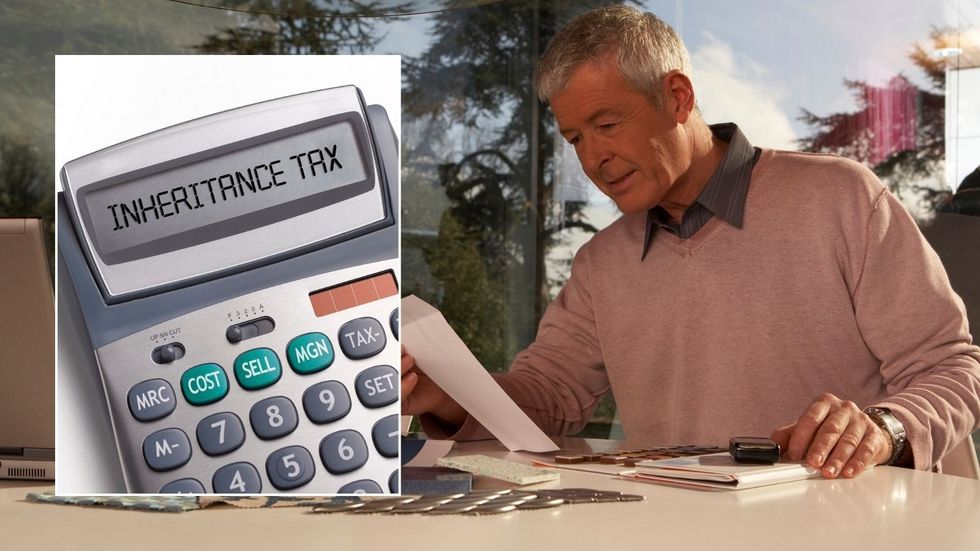Britons are urged to implement various inheritance tax saving measures
GETTY
Britons are urged to implement various inheritance tax saving measures as 'a lot more people' are being caught out and forced to pay thousands to HMRC
Don't Miss
Most Read
Trending on GB News
Millions of British families are missing "two crucial steps" in protecting their loved ones' financial futures from soaring inheritance tax, new research reveals.
A staggering 72 per cent of UK adults do not have a will in place, leaving nearly 40 million people at risk of intestacy rules determining their estate's distribution.
The situation is particularly concerning given that the average estate administered by Co-op Legal Services is worth over £300,000, putting significant assets at stake.
The risk extends beyond missing wills, with research showing only a fifth of British adults have taken out life insurance policies.
A quarter of Britons believe they don't need life insurance, according to Co-op Legal Services, potentially leaving their families exposed to additional financial strain.
James Antoniou, Head of Estate Planning at Co-op Legal Services explained: "A will enables you to plan and record your wishes so that they can be legally recognised, as well as take advice from a regulated provider so that you’re making informed decisions.
 An expert has shared a way families can cut down their inheritance tax billGETTY
An expert has shared a way families can cut down their inheritance tax billGETTY "Just these two steps can significantly mitigate complications arising and potentially help the probate process to run more smoothly for your loved ones."
This combination of lacking both a will and life insurance could leave families particularly vulnerable during an already emotionally challenging time.
Without a will, estates are distributed according to intestacy rules rather than personal wishes and may be subject to IHT that could otherwise be avoided.
Antoniou said: “Of course, when it comes to estate planning, the impact that our death would have on our loved ones can be a difficult subject to broach.
“Our research suggests that a large proportion of the population have not put a legally valid will in place.
"However, this is an essential part of planning for the inevitable and is something that we should all take the time to do."
HMRC has collected an additional £500m in inheritance tax compared to last year, with receipts reaching £5billion between April and October 2024.
Helen Morrissey, head of retirement analysis at Hargreaves Lansdown, said: "Inheritance tax is on track for another record year with receipts so far hitting £5bn. With five months of the tax year yet to go it should easily outstrip last year's £7.5bn.
"It may be a tax that so far only hits a small proportion of the population but, after last month's Budget, it's about to be an issue for a lot more people, after the decision was taken to make pensions part of someone's estate for inheritance tax purposes. This won't kick in until 2027 but will be a major part of many peoples financial planning."
As receipts soar, it may be now more than ever the time to make a will.
By writing a will, families can help to minimise charges if they decide to leave their estate to a spouse or civil partner
Those who are married or in a civil partnership can take advantage of the ‘spousal exemption’ and leave their estate to them in the will. In doing so, regardless of the total amount or whether it exceeds the nil rate band – the full value will transfer free from inheritance tax.
When a spouse passes away, they will also benefit from a person's unused inheritance tax allowance. This means, they can pass up to £650,000 - potentially more - on to somebody else, completely tax-free.
Another way a Will can reduce the inheritance tax bill is if people use it to maximise their property allowance
By leaving the home to children - or grandchildren - in the will, families will be entitled to a ‘property allowance’ – also known as the residence nil rate band.
Essentially, these allowances increase one's personal nil rate band by £175,000 – and they'll be able to pass on an estate worth up to £500,000 – without paying a single penny of inheritance tax.
For a married couple – who choose to combine their allowance and leave their home to their children – this means passing on an estate of up to £1m free from IHT.







